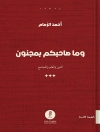Editors’ Foreword The fundamental changes currently taking place in the national and international science landscapes can no longer be overlooked. Within those changes, reforms do not go ‘as planned’ but, as is always the case with processes of rationali- tion, have a series of unintended effects. At the same time it becomes incre- ingly clear who in this process are the winners and who are the losers, although this is still subject to fluctuation and change. This can be illustrated by two – amples from current events: Where the range of taught courses is concerned, as part of the Bologna Process the new structuring of student study paths and their organisation is aimed at unifying the European area of science to ensure a study that is equally permissive and efficient. However, it is to be deplored that the mobility of s- dents has become more restricted because of an increasing specialisation in the available study paths. Also, bachelor degrees do not meet with the anticipated high response from the labour market in all countries, so that the master’s degree is becoming more or less a ‘must’, while at the same time the number of study places on master’s courses is limited. Instead of the intended reduction in the duration of study time in comparison to the previous German ‘Magister’ and ‘Diplom’, rather a prolongation in the duration of studies has been recorded.
Jadual kandungan
“Gender Change in Academia“: Gender in Universities in Lower Saxony.- Engendering the University through Policy and Practice: Barriers to Promotion to Full Professor for Women in the Science, Engineering, and Math Disciplines.- Hyper-Modernisation and Archaism: Women in Higher Education Internationally.- Gender and gatekeeping of excellence in research funding: European perspectives.- The new entrepreneurship in science and changing gender arrangements – Approaches and perspectives.- Gender, Managerialism and Academe: Challenges and Prospects.- Science Between Organization and Profession: Opportunities for Neutralizing Gender? – Reflections on Research Assessment.- Careers and the Reorganisation of University and Research Systems in France and Germany.- Reforming university, re-gendering careers. Informal barriers to women academics in Austria.- Grasping the poisoned chalice: Higher education and managerial identities in Sweden.- Is Science as way of life in transition? Some notes about the every day style of life of academics in Germany.- Academic Life and Gender Relations. The Case of Fathers in Professorship.- Gender Knowledge under Construction. The Case of the European Union’s Science and Research Policy.- Women in cutting-edge research – gender equality and the German Excellence Initiative.- Contemporary Challenges for gender research in the context of globalisation.- ‘Security’ Architectures, New Ontologies and the Category of Gender. Contemporary Challenges in Feminist Technoscience Studies.- Innovative changes in biomedicine: integration of sex and gender aspects in research and clinical practice.- Gender Studies as a Profession.- Promoting Women in Post-Graduate Studies: Chances and Challenges of Ph D Reforms in Germany.- From Feminist Social Work Projects to Gender and Diversity Modules? Gender in Social Work BA and MA Curricula at Universities of Applied Sciences.- Gender Studies in Entrepreneurial Universities: The Case of Inter- and Transdisciplinarity.- Building Two-Way Streets to Implement -Policies that Work for Gender and Science.- Gender Discourses and Organisational Change. The Economisation of Gender Politics in Germany.- What works and what doesn’t: How to increase the representation of women in academia and business.- Gender Politics: Behavior therapy for the two sexes or a structural critique of economic relations?.- Reflecting on practical experience and a case study within the field of gender equality politics.- Gender Mainstreaming, Diversity Management and Inclusive Excellence: From Similarities and Differences to New Possibilities.- Diversity Politics and Diversity Management in Organizations.- Managing Gender & Diversity – Assumptions, Connections and Challenges for theory development.- Promoting e/quality and excellence in universities and research: The “Gender-Alliance” for the German science system.- Do Little Strokes Fell Big Oaks? Mentoring within the Federal Programme for Gender Equality at Swiss Universities and Its Impact on Academic Structures.- Gender Equity in Science.
Mengenai Pengarang
Prof. Dr. Birgit Riegraf teaches and is doing research in sociology at the Department of Cultural Sciences at the University of Paderborn .
Prof. Dr. Brigitte Aulenbacher is Head of the Department of Theoretical Sociology and Social Analysis at the Faculty of Sociology at the University of Linz.
Dr. Edit Kirsch-Auwärter is Equal Opportunity Commissioner at the University of Göttingen and Head of the Equal Opportunities Office there.
Prof. Dr. Ursula Müller represents the Gender Studies at the Faculty of Sociology of the Bielefeld University and she is Director of the Interdisciplinary Center for Women’s and Gender Studies (Interdisziplinäres Zentrum für Frauen- und Geschlechterforschung, IFF).












